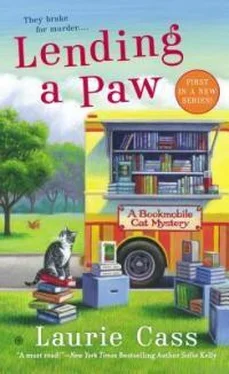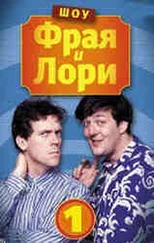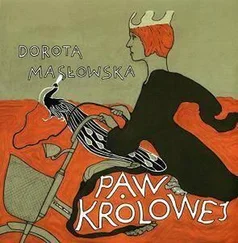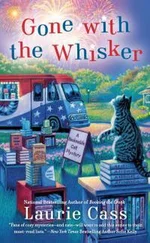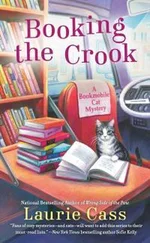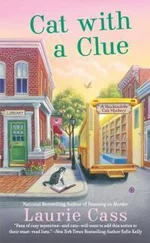Vinyl-covered booths lined the walls and tables filled the middle. Small square tables, with the exception of the one round table in the back. This was the table where the elder men of the town congregated on weekday mornings. Opinions were aired, politicians dissected, and decisions were made, whether or not any facts were taken into account.
The whole scenario irritated me, but since it was Sunday, the table was empty. I sat in a booth, triangulating myself into a position equidistant from a couple with small children and a man in the back booth hunched over a laptop.
The waitress, Sabrina, brought me a mug of coffee and a glass of ice water without me saying a word. “Here you go, hon. Cinnamon apple pancakes with sausage links.”
I grinned. “You’re amazing. I haven’t had time to come here since early April. How do you remember this stuff?”
“Here’s your cream.” She took three tiny plastic cups from her apron pocket and set them on the tabletop. The pencil behind her ear got pulled out, was used to scribble down my order, then pushed back into her bun of long graying hair. “How do I remember? Easy.” She winked. “I’m a professional.” She headed off to the kitchen and I was left with my own company.
The direness of the situation suddenly struck me. All by myself for half an hour, and I had no book. I did have my cell phone and a book app, but since I couldn’t remember the last time I’d charged the battery, I’d probably get all of five minutes of reading before the thing died on me.
So, no book. Also no newspaper, and no magazine. I started to get up to grab a booklet of real estate listings from the stack next to the cash register when I recognized the man with the laptop.
Bill D’Arcy.
Mr. I-Don’t-Have-a-Word-to-Say D’Arcy. Mr. Suspect-Through-Sulkiness D’Arcy.
I sat back down, sipped my coffee, and studied him. He didn’t seem to be using the keyboard or touch pad often, but I could tell by his arm movements that he was using one of them regularly. I counted, and every thirty seconds he made another click.
Hmm. Could he be reading? Who did that much reading on a computer? I rubbed at my eyes.
“Here you go, Minnie.” Sabrina put my breakfast in front of me. “Can I get you anything else?”
“Actually, do you have a minute? There’s something I want to ask you.”
“Important, huh? Hang on a sec.” She checked on the other tables, got a “No, thanks,” from both, and came back to slide into the opposite side of my booth. “Okay, lay it on me. Ask me anything except the recipe for those pancakes, because I’m not telling. And eat up. No sense in good food going cold.”
Obediently, I forked into a pancake. With the bite hanging off the tines, I leaned forward and quietly asked, “What do you know about Bill D’Arcy?” I nodded in his general direction.
She glanced over her shoulder. “Not a blessed thing. That man hasn’t the foggiest notion of how to make small talk.”
“No idea where he’s from, why he came up here, anything?”
“Only thing I know about him is he orders whatever the special is every morning, drinks three pots of coffee, most always stays through lunch, orders the lunch special, and stays until we close at three. He stares at his computer the whole time. Tips real good, though,” she said reflectively. “Of course, he’d better, hogging a table like that.”
“He comes here every day?”
“The most regular customer we have.”
We gawked at the rut-bound Mr. D’Arcy.
“But I take it back,” Sabrina said, the booth’s vinyl squeaking at she turned back to face me. “There was one day he wasn’t here at all. About three weeks ago, I’d guess.” She hummed a tune. “Must have been a Friday, because the breakfast special was the Western omelet, that’s his favorite, and he wasn’t here. Cookie in there”—she tipped her head to the kitchen—“figured he must have died, but the next day he was back again, just like normal.”
“Did he say where he’d been?” I asked.
“Eat,” she commanded. It wasn’t until I was chewing that she answered my question. “He didn’t say word one about where he’d been. Just plopped himself down in that booth like he’d never been gone and didn’t unglue his eyes from that stupid computer for hours. Look at him. He’ll reach for his coffee without even looking. Does the same thing with food.”
But I wasn’t thinking about Mr. D’Arcy’s eating habits. “The Friday he was gone,” I said slowly. “Was that the day Stan Larabee was killed?”
She drummed her short fingernails on the table. “You know, I think it was.”
I suddenly felt a large, solid presence next to the table. We looked up and saw a glowering Gunnar Olson looming above. “You must need to talk to Minnie,” Sabrina said, sliding out of the booth. “What can I get you, Gunnie?”
“Coffee,” he growled, dropping into the seat she’d vacated. “And make it quick.”
“Keep your pants on.” She leaned over and whispered to me, “Give me the high sign if you need help with this guy.”
Gunnie? “Thanks, but I’m good.”
We sat there, listening to the occasional click of Bill D’Arcy’s keyboard, listening to the parents struggle to keep their toddlers in line. I listened to myself chew and swallow. Gunnar sat with his arms folded and stared out the front window.
When Sabrina returned with a carafe of coffee and a mug, she asked, “Anything else?” Gunnar sipped his coffee and glared at me. I said, “No, thanks, Sabrina.”
Gunnar waited until she was out of earshot before he pushed his coffee aside and leaned forward, his arms spread wide on the table, the better to intimidate me with. But that kind of domination attempt didn’t work on me. I wasn’t even five feet tall. Everyone was bigger than I was. It was something I was accustomed to and knew how to ignore.
“What did you hear?” he asked. “The other night, when you were eavesdropping. How much did you hear?”
I wanted to say, “Pretty much all of it,” but there was a reasonable chance that the man sitting across from me was a killer. What I needed was to be smart, and to be smart in such a clever way that he didn’t realize I was outsmarting him.
“I told you the truth. I fell in the water because I was trying to keep my cat from falling in.”
“Cats don’t fall,” he said flatly.
“And cats don’t like bread, either, but Eddie loves the stuff.”
“You named your cat Eddie?”
I shrugged.
For some reason, the idea of a cat called Eddie amused him. He snorted out a laugh. “Eddie. What a stupid name for a cat.” He snorted again, then leaned low across the table. “I didn’t kill Stan Larabee,” he said quietly.
I cut my cold sausage into bite-sized pieces. Speared one piece. “Okay.” I popped the bite into my mouth.
“Nothing wrong with a nice grudge between former business partners, is there? But I didn’t kill him.”
Since I was chewing, I held out a hand, palm up, and made a tell-me-more gesture with my fingers.
His nostrils flared as he breathed in and out, in and out. “Twenty years ago, when I was down in Florida for a business conference, a mutual friend introduced me to Larabee. He thought it was funny that I summered where Larabee had grown up. Real funny,” he said, making fists with his hands. “I’m laughing hard enough to hurt myself.”
I swallowed. “So, twenty years ago . . .”
“Yeah. Back then life was good for buying property in Florida, putting in some roads, slapping up modulars, and making a killing. Larabee said he’d come across this sweet property—the owner needed cash and was selling it for a song. Larabee said he was thinking about getting out of the development business, but if I wanted in, we could make a limited liability corporation, each put in half, each get half the profits.” His face was turning a deep shade of red.
Читать дальше
